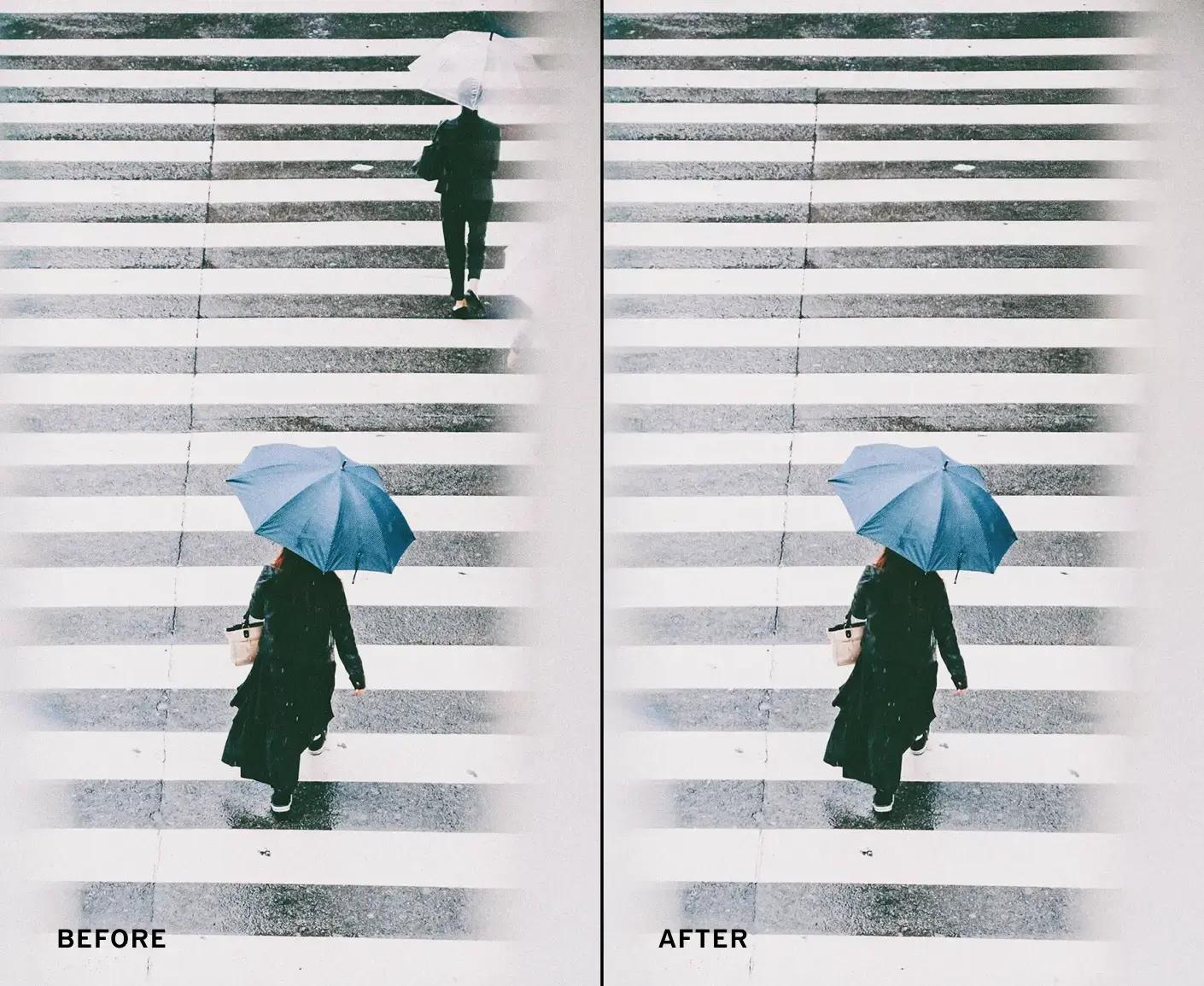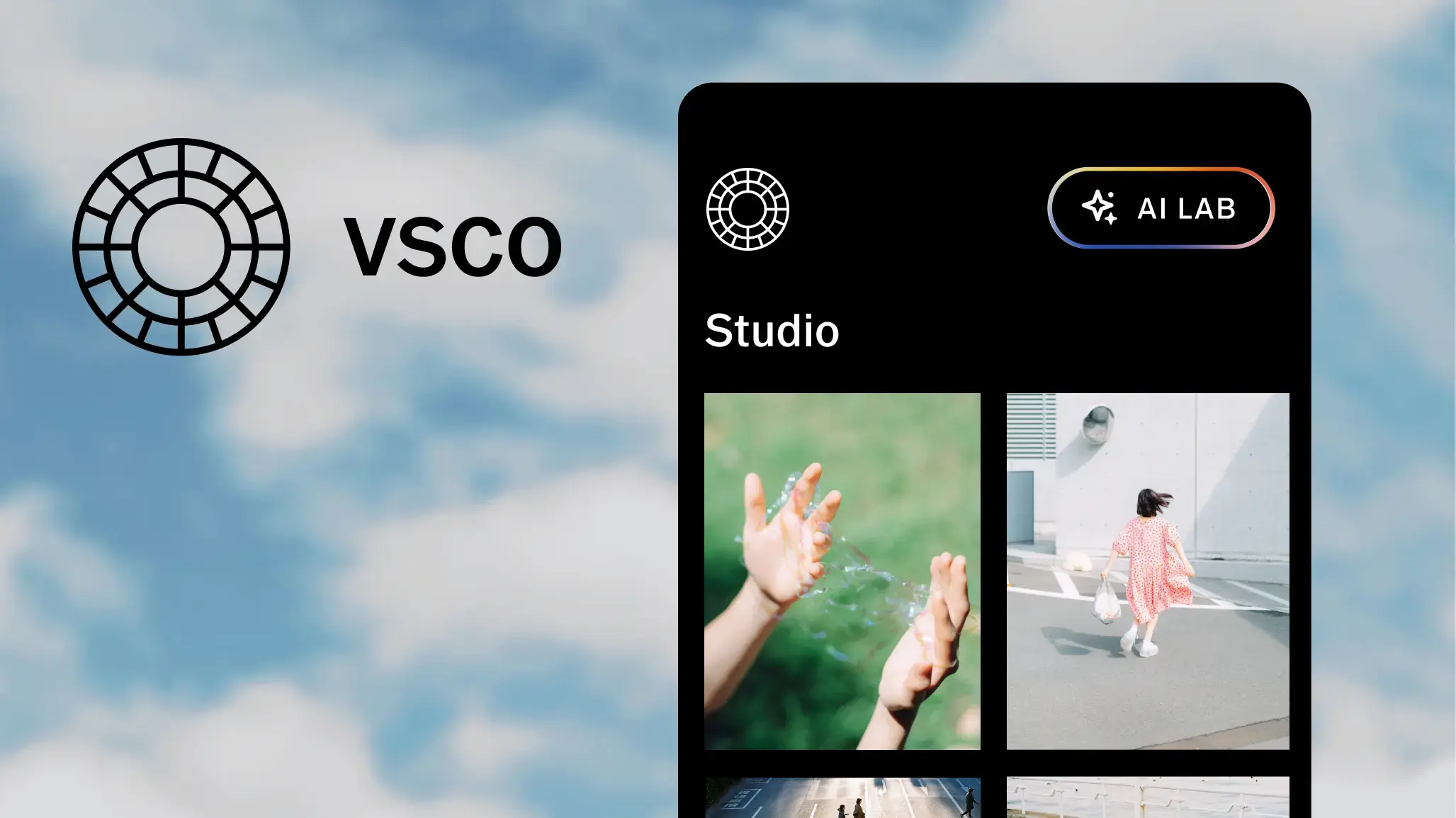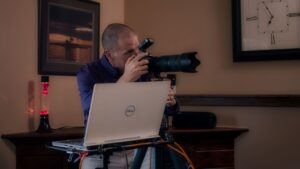
You have to give some to get some – community is built on authentic connection.
Eric Wittman
You can also listen to this episode with Eric on iTunes, Pocket Casts, Spotify, Castbox, and Google Podcast
Join our photography community and interact with the host, Perrin, gain access to monthly photo contests, discover daily inspiration, and much more!
Interested in contributing? Visit our Supporter page to find out more.

When Eric Wittman joined VSCO, he wasn’t there to maintain the status quo – he was there to ask hard questions. Like why so many photographers felt they had to “graduate” from the platform. Or why a company known for presets wasn’t seen as a place to grow a full creative career. Or what would happen if a photo app stopped chasing algorithms and started chasing community.
This episode isn’t a tech story or a business case study. It’s a conversation about what it means to support photographers at every stage, whether you’re just learning how to compose a shot or trying to turn your passion into paid work.
Eric shares how his own journey from film photographer, to Flash product manager to creative tech CEO has shaped his view of the tools we use and the spaces we gather in. And how VSCO is shifting from a one-dimensional editing app to a full-stack ecosystem for creative independence.
He also gets honest about change. What change truly looks like, what it’s like to lead through it, what it costs, and why it’s worth doing when it means giving more people the chance to create something meaningful.
Here’s some of what we get into:
- Why VSCO is rethinking its identity, and who it’s really for now
- The importance of “creative friction” and embracing hard feedback
- How AI can support, not replace, creative work (and where it’s already happening)
- The challenge of building tools and community without compromising either
- Why mentorship, visibility, and connection are more critical than ever
- What a photo walk in San Francisco taught Eric about the future of photography
Whether you’ve left VSCO behind or never tried it at all, this conversation might make you look at it, and your own creative tools, a little differently. Hope you enjoy.

Q: What is it about these creative tools that just keeps pulling you back into this world?
Eric: I’ve been doing this for over 30 years, mostly working on products to help other people make things – whether it’s photos, multimedia, or software. My roots are in a creative family: my grandfather was a mechanic, another was a woodworker, my dad was a musician, and my mom was also creative. So building things that help others create has always been natural for me. That early internship at a tech startup turned into a lifelong career, starting with Macromedia and later Adobe, and it all ties back to empowering creativity.

Q: What did you feel needed to shift in order to serve that professional photography community? What were some of the first changes you wanted to make or avoid making too quickly?
Eric: The first thing we had to do was talk about ourselves differently – internally and externally. We had a mix of people from consumer and legacy creative backgrounds, so alignment was key. Then we went out and did a lot of community and user research. We learned that people had lost that sense of community and struggled with exposure, discovery, and managing the business side of photography. That led to changes like VSCO Hub, to help photographers get discovered, and VSCO Workspace, to handle contracts and invoicing, things essential for professionals.

Q: How do you see these AI tools shaping the toolkit of a working photographer? Where does it fit in?
Eric: I think it fits in where photographers are least efficient – whether it’s planning shoots, editing, or running the business. Not everyone wants to sort through 15,000 wedding images, so AI can help narrow that down based on your style. Or automatically email clients or update your portfolio. These are real pain points we’ve heard about, and AI can assist without replacing the creative process. It should handle the mundane so photographers can focus on their craft.
🔗 Connect with Eric Wittman
🧭 What We Talked About
🎼 Early Journey / Origins
- Eric’s creative roots stem from a family of builders and artists: a mechanic, a cabinet maker, and a musician.
- He originally pursued music and theater before landing a life-changing internship at Macromedia, which launched a career in creative tech.
- He became the first product manager for Flash, helping reshape multimedia on the web, and later worked at Adobe and Figma before joining VSCO.
📖 Philosophy / Vision / Storytelling
- Eric sees photography as both a practical family tool and a personal artistic outlet, offering creative release and moments of mindfulness.
- He emphasizes the idea of creative friction – constructive critique that leads to better tools, outcomes, and community.
- VSCO’s value “Be You” drives their commitment to authenticity, helping photographers experiment safely and find a style that’s truly theirs.
- He describes authenticity not as a static look but as a feeling of creative confidence, shaped by exploration and self-discovery.
📷 Tools, Gear, and Behind the Scenes
- VSCO began with presets for Lightroom, later launching a mobile app just as mobile photography and Instagram were booming.
- Today’s platform includes AI-powered features like For This Photo, which recommends presets based on image analysis.
- The AI Lab includes tools like the patent-pending Remove Tool, designed to preserve artistic integrity while enhancing editing ease.
- VSCO Canvas allows photographers to build mood boards and collaborate visually – blending their own photos, community work (with attribution), and AI-generated images.
- Throughout these innovations, VSCO’s focus remains on human-centered design and empowering visual creators.
🔁 Practice, Teaching, Platforms
- VSCO is leaning into mentorship and education, recently acquiring The Freelance Photographer to guide aspiring commercial photographers.
- Photo challenges like “Afterglow” or “The Wild West” give creators prompts to explore new styles and break out of ruts.
- These challenges also enable cross-pollination between beginners, emerging pros, and seasoned photographers who can connect, collaborate, and even mentor one another.
- VSCO Spaces offer topic-specific community hubs – like natural light or street photography – where photographers can share, comment, and even organize in-person meetups.
💬 Advice, Creative Strategy, or Challenges
- Eric encourages creatives to embrace feedback, including the uncomfortable kind, as essential to growth.
- He highlights the importance of community support in helping photographers avoid isolation and burnout.
- His advice: Don’t fear AI – learn alongside it and let it become a creative collaborator, not a replacement.
- He challenges photographers to focus not just on gear or tools, but on cultivating vision and connection – skills that remain human and irreplaceable.
🌍 Influences, People, Brands, or Places
- Eric referenced the resurgence of film photography, comparing it to the return of vinyl, with Kodak’s new film line underscoring this analog renaissance.
- At a VSCO photo walk, a pro sports photographer brought only an Instax camera, showing how artistry can shine through any gear.
- He acknowledged how past perceptions – like the “VSCO girl” trend – nudged some serious photographers away, prompting VSCO to redefine its path.
- By addressing professional needs like exposure, client discovery, and business management (via VSCO Workspace), the platform now supports creators at every stage.
- The influence of creators like Tess Burris, who began on VSCO and developed a distinctive, client-winning style, exemplifies the platform’s long-term potential.
- Industry context included mentions of platforms like Adobe, Squarespace, Shutterstock, and Getty, as comparisons to how VSCO is carving its own course.
🔮 What’s Next for Eric and VSCO
- Eric is focused on increasing the “creative GDP” by helping more photographers succeed economically and creatively.
- His vision includes better sharing of industry trends and insights, helping VSCO act as a thought leader in the photography space.
- He’s excited about bridging digital and physical communities, using tools like Spaces, photo walks, and hybrid workshops to foster real connection.
- Long-term, he hopes to continue building tools that are affordable, intuitive, and powerful – enabling anyone, anywhere, to unlock their creative potential.









